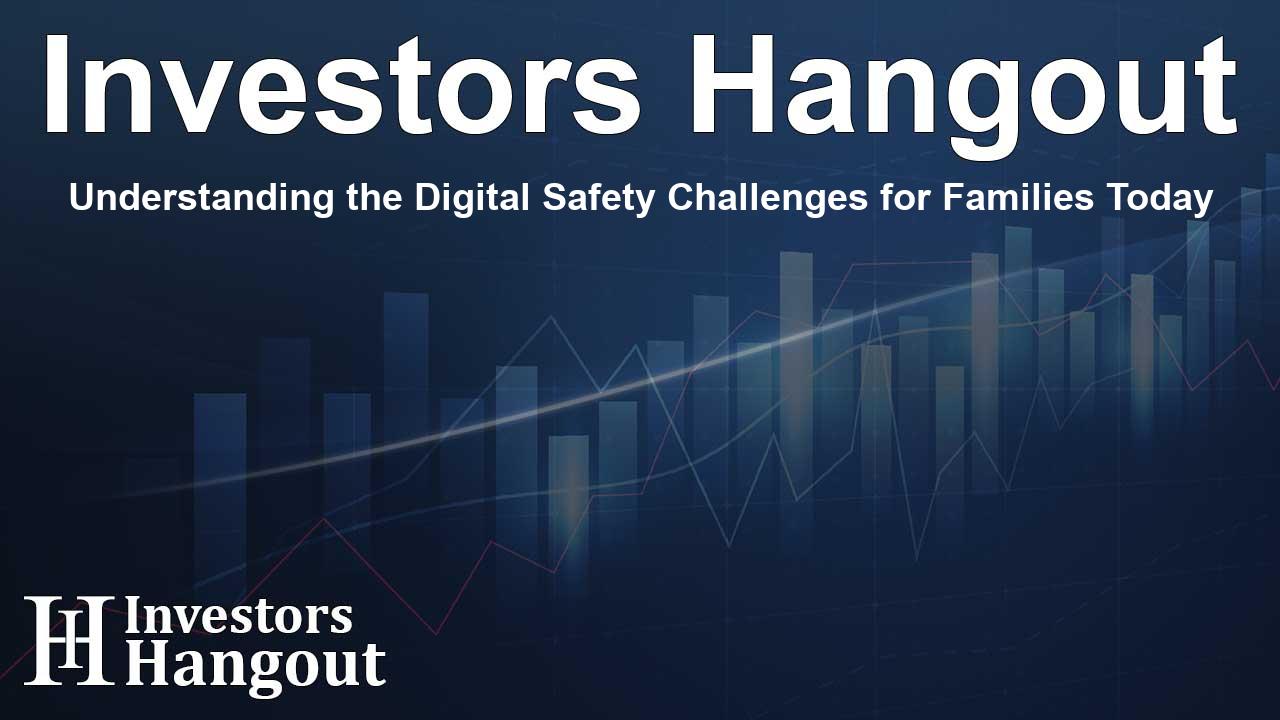Understanding the Digital Safety Challenges for Families Today

Understanding the Digital Safety Challenges for Families Today
Today, many individuals in their late 30s to early 50s, often referred to as the sandwich generation, are facing unique challenges in managing online safety for both their teenagers and aging parents. According to new research, a significant 86% of these individuals feel that overseeing digital safety heightens their stress levels. It can be overwhelming when the digital landscape appears to have so many dangers lurking around.
Concerns About Online Safety
As digital engagement increases, worries about online safety have become all too palpable. The survey titled Connecting the Digital Dots: Online Habits and Safety Concerns Across Three Generations highlights that prevalent issues include exposure to online predators and inappropriate content alongside experiences of cyberbullying and identity theft. These concerns can significantly affect the daily lives of both teens and older family members.
Teenage Digital Risks
When we delve into the specific risks that teenagers face, the findings reveal some alarming statistics:
- About 33% of teens have encountered inappropriate content online in the past year.
- More than 25% of teens have been victims of cyberbullying.
- A concerning 20% reported interactions with online predators.
Aging Parents' Vulnerabilities
Aging parents are not exempt from such online risks. The survey indicates:
- Over one-third of respondents noted that their older family members had experienced phishing scams or data breaches.
- A staggering 60% expressed concerns about the potential for identity theft targeting their parents.
These findings underline the increasing need for families to collaborate and proactively discuss online safety measures.
Proactive Measures for Better Safety
Despite the pressing concerns, there is a ray of hope. Most individuals from the sandwich generation reported engaging their teens and parents in conversations about online safety on a regular basis. Many have adopted strategies such as:
- Encouraging the creation of strong and unique passwords (62% of respondents).
- Promoting the activation of multi-factor authentication (56%).
- Advocating for the removal of insecure apps and channels altogether (53%).
These practical measures not only protect family members but also cultivate a culture of safety within households.
The Role of Technology and Community
The integration of technology into daily life can enhance connectivity, provide learning opportunities, and foster independence, but it also presents challenges that families must navigate together. As Colleen Langner, Chief Residential Officer of Cox Communications, emphasized, technology can become less daunting with the right tools and knowledge at hand. Families should feel supported in their quests for digital safety, not isolated.
Moving Forward in Digital Safety
The survey's results indicate a growing acknowledgement among families that they must tackle these concerns together. Additional insights reveal how generations balance issues around screen time, social media usage, and mental health. By engaging in open discussions and sharing knowledge, families can improve their overall online safety environments.
About the Study
This enlightening survey, commissioned by Cox Communications, engaged a diversity of Americans, including teens, seniors, and members of the sandwich generation, to uncover their online behaviors and safety worries. The results are illuminating — highlighting the importance of communication, education, and cooperative action.
About Cox Communications
As the largest privately-held broadband provider in America, Cox Communications is deeply committed to enhancing human connection through advanced technological solutions. Their widespread network services reach millions of households across the country, setting the stage for future generations to stay connected and safe in an evolving digital landscape.
Frequently Asked Questions
What is the sandwich generation?
The sandwich generation refers to individuals in their late 30s to early 50s who are caring for both their aging parents and their children simultaneously.
What are the main concerns regarding online safety for this generation?
Key concerns include exposure to online predators, cyberbullying, phishing scams, and identity theft affecting both teens and aging parents.
How often do sandwich generation respondents discuss online safety with family members?
Many respondents report discussing online safety regularly, with daily or several times a week conversations.
What preventive measures do families take for online safety?
Families often discuss creating strong passwords, activating multi-factor authentication, and removing unsafe apps to enhance online safety.
Why is this survey important?
This survey sheds light on the digital challenges faced by families today and emphasizes the importance of proactive and cooperative measures for ensuring online safety.
About The Author
Contact Caleb Price privately here. Or send an email with ATTN: Caleb Price as the subject to contact@investorshangout.com.
About Investors Hangout
Investors Hangout is a leading online stock forum for financial discussion and learning, offering a wide range of free tools and resources. It draws in traders of all levels, who exchange market knowledge, investigate trading tactics, and keep an eye on industry developments in real time. Featuring financial articles, stock message boards, quotes, charts, company profiles, and live news updates. Through cooperative learning and a wealth of informational resources, it helps users from novices creating their first portfolios to experts honing their techniques. Join Investors Hangout today: https://investorshangout.com/
The content of this article is based on factual, publicly available information and does not represent legal, financial, or investment advice. Investors Hangout does not offer financial advice, and the author is not a licensed financial advisor. Consult a qualified advisor before making any financial or investment decisions based on this article. This article should not be considered advice to purchase, sell, or hold any securities or other investments. If any of the material provided here is inaccurate, please contact us for corrections.
